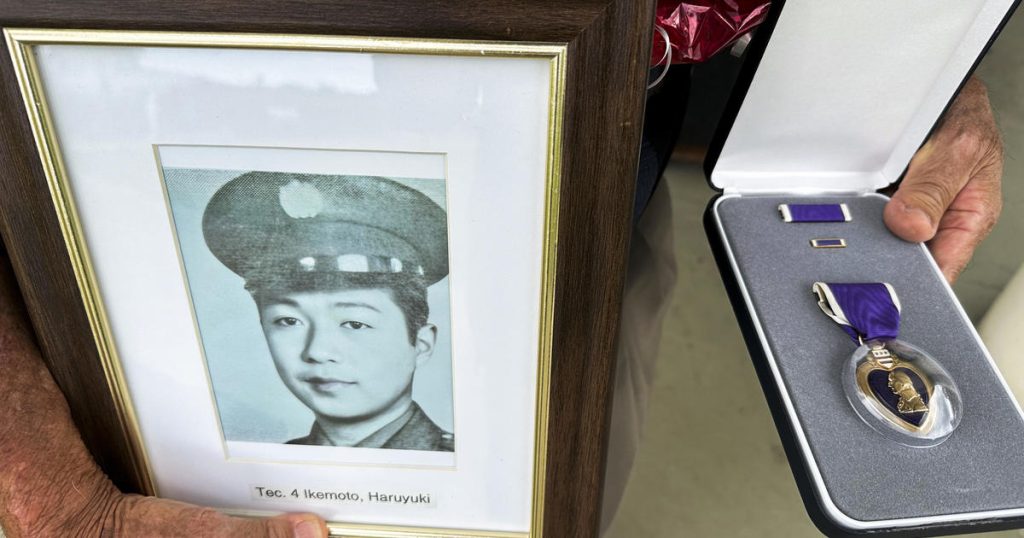Five Hawaiian men who served in a unit of Japanese-language linguists during World War II were finally recognized with posthumous Purple Heart medals nearly 80 years after their deaths. These men were among 31 killed when their plane crashed in Okinawa in August 1945. Army records only showed that two of the 31 received Purple Heart medals, which are awarded to service members wounded or killed during action against an enemy.
Researchers in Hawaii and Minnesota discovered the omission and prompted the Army to issue medals to the families of the 29 men who were never recognized. Families of the five Hawaiian men were located and the Army is urging the families of the other 24 men to come forward so their loved ones can also receive recognition. The families were overwhelmed by the belated honor given to their relatives and expressed their gratitude during a ceremony in Pearl Harbor, Hawaii.
The men who were awarded Purple Hearts were a part of different units on the ill-fated flight, which was carrying paratroopers, soldiers in a Counter-intelligence Detachment, Japanese American linguists in the Military Intelligence Service, and crew members. The Army’s failure to recognize all 31 soldiers with medals was attributed to administrative oversight in the waning hours of the war, as the U.S. was preparing to invade Japan but changed plans after indications of Japan’s surrender. The Hawaii five were part of the MIS, a unit of mostly Japanese Americans who served crucial roles in interrogating prisoners, translating messages, and gathering intelligence.
The posthumous Purple Heart medals were presented to the families by retired Army Gen. Paul Nakasone during a ceremony at Pearl Harbor. Nakasone, who had a personal connection to the event as his Hawaii-born father served in the MIS after the war, praised the contributions of the MIS soldiers both during combat and the occupation of Japan. During the U.S. occupation of Japan, these soldiers played important roles as liaisons between American and Japanese officials and oversaw regional governments.
In addition to the Hawaiian men, the niece of the senior officer aboard the plane, Capt. John H. Norton, was also located and will receive a posthumous Purple Heart in honor of her uncle. The goal of these ceremonies is to help other families pursue the Purple Hearts that their loved ones earned with their service. The recognition of these men and their sacrifices highlights the contributions of the MIS soldiers during World War II and brings closure to their families after many years of oversight and neglect.


